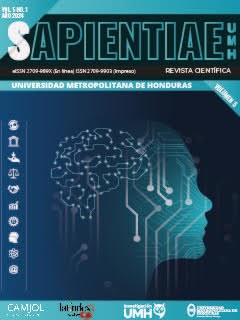PRESCRIPCIÓN Y REBELDÍA, UNA RELACIÓN DE ACCESO A LA JUSTICIA Y PLAZO RAZONABLE
DOI:
https://doi.org/10.5377/umh-s.v5i1.19540Palabras clave:
Derecho penal, prescripción, acceso a la justicia, plazo razonable, rebeldíaResumen
En el ámbito del derecho penal y procesal penal, durante años se ha sostenido un debate en torno al tema de la prescripción (de la acción penal y de la pena) específicamente a su aplicación, en los casos en que el imputado se encuentre declarado en rebeldía o no habido, esta constante variedad de opiniones y razonamientos, en la práctica forense penal cobró protagonismo con la entrada en vigencia del Código Penal tanto jueces, fiscales, procuradores del Estado, defensores públicos y privados, sostienen su postura relacionada a la concurrencia o no de los supuestos que la Ley establece y el tratamiento que se le debe dar a la figura de la prescripción. Es por tal razón, que, sin pretender ofrecer innovaciones conceptuales, se recurre a las definiciones aportadas por renombrados autores a efecto de aportar herramientas teóricas, doctrina y fundamentos jurisprudenciales nacionales y de derecho comparado, útiles y necesarios, para alcanzar con el presente artículo una finalidad práctica, aportando una propuesta para el tratamiento de la figura jurídica de la prescripción de la acción penal y de la pena, en relación a casos en que el procesado se encuentre declarado en rebeldía o no habido.
431




